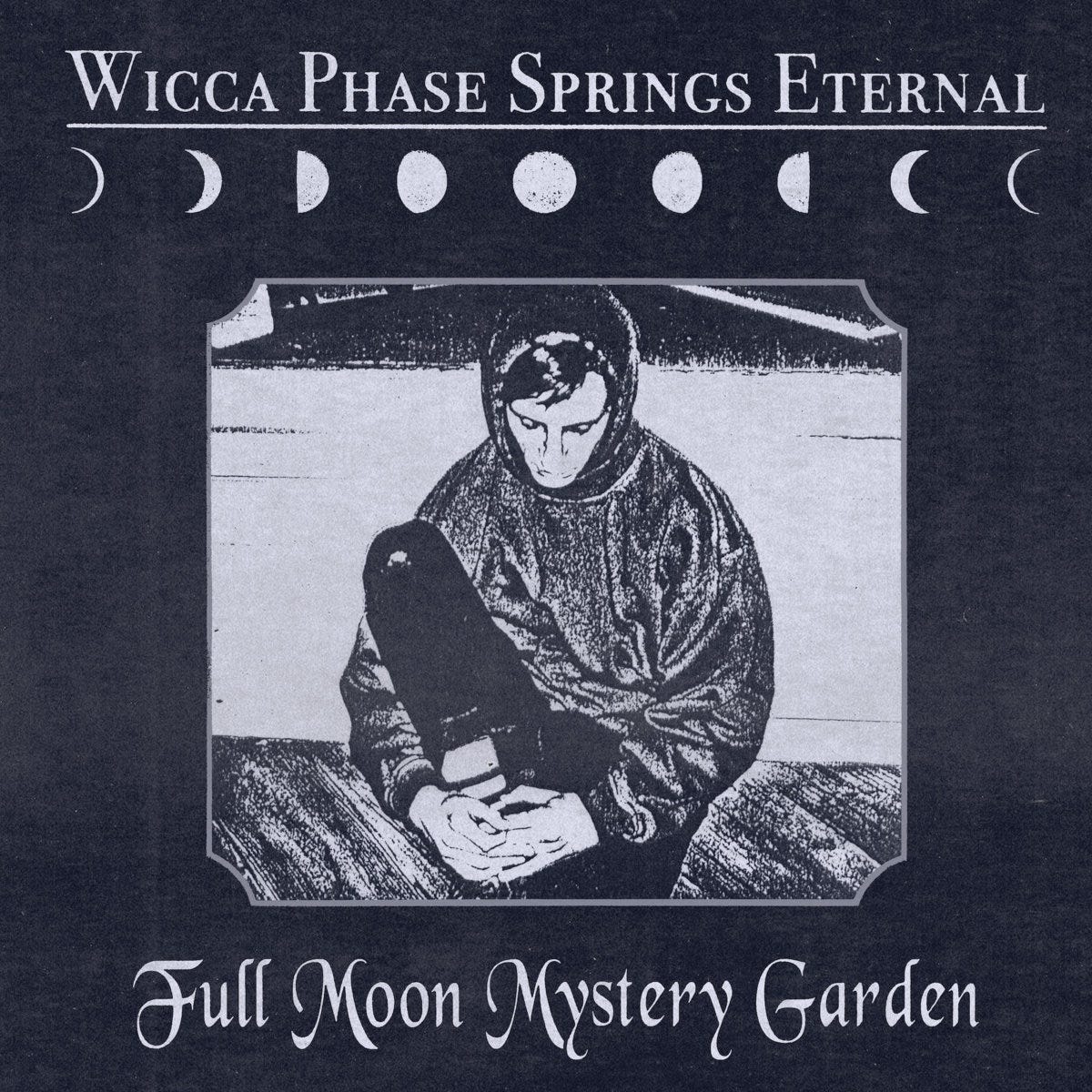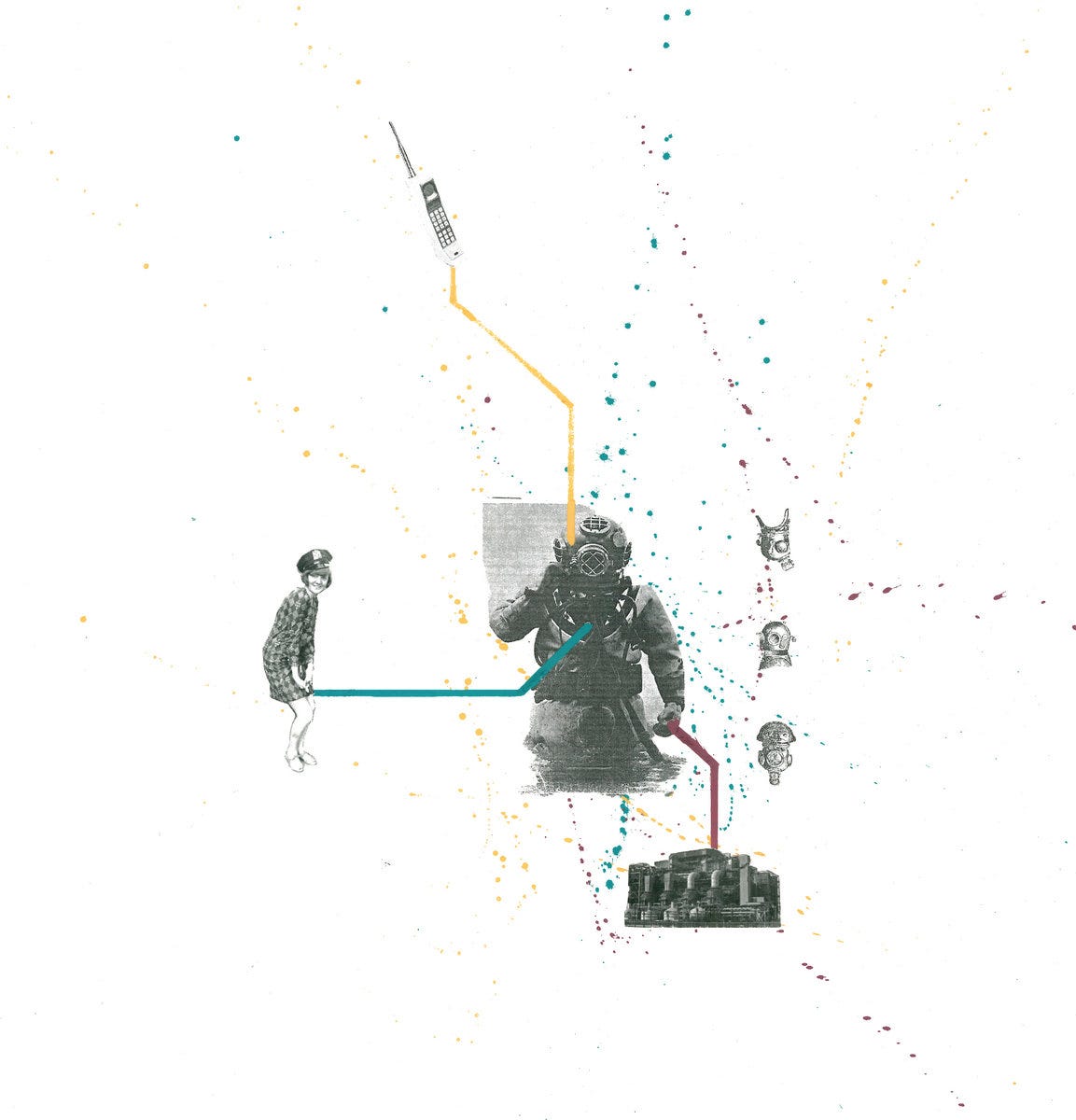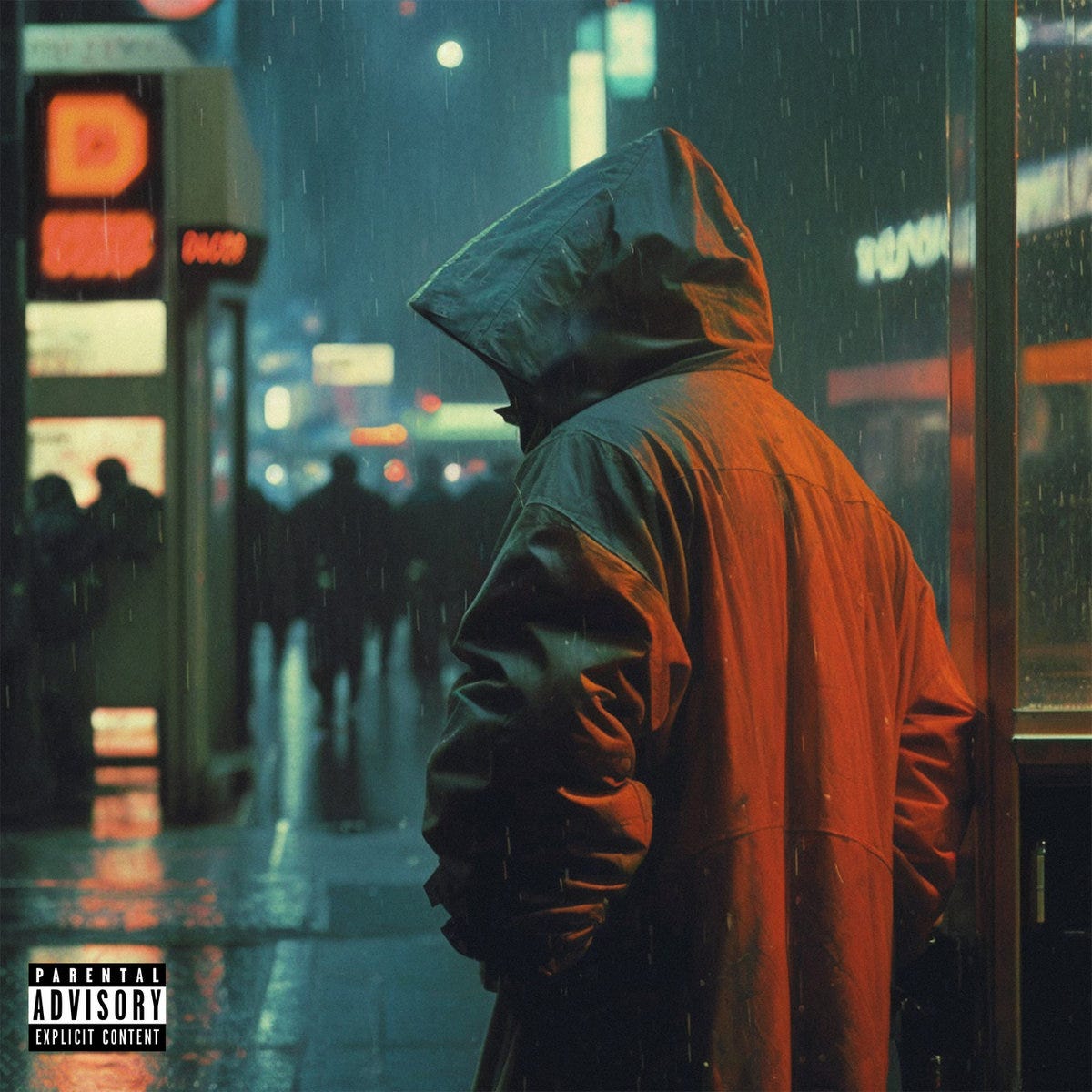Beyond wrapped: Poptimism, false meritocracy and the death of the critic
Host Bram E. Gieben shares a swansong for music criticism in the era of the algorithm, and five 2023 albums you'll love
Meritocracy has never been more loudly proclaimed as a guiding principle of cultural production than it is in the age of the algorithm. The idea that ‘the cream will rise to the top’ seems to be almost universally accepted, as though the dominance of powerful music industry lobbies had been replaced by the populist ‘truth’ of your Spotify Wrapped stats, reflecting back to you only what you choose, what you love. In truth, whatever vestiges of meritocracy may have existed in the music industry a few decades ago are gone now.
Aesthetic currents from underground, independent and experimental art no longer reverberate in the wider commercial market the way they used to. What critics might have in the past written about and defined as ‘good art’ has been drowned out by a tide of writing about pop culture, in a style that Freddie DeBoer and others have called ‘poptimism’: “A critical mindset that has reached a place of total hegemony within the world of professional music commentary… a theocracy of taste.”
The marketing campaign behind Spotify Wrapped neatly plays into the poptimist argument that all music is equal, and therefore popular music is good… so Taylor Swift is the best artist, because she is the most popular. The near-universal critical adoration of Swift - the seriousness with which her music is treated by critics - depends on the premise that one kind of art cannot be elevated above another, except by the market. If more inventive or original music was better than Taylor Swift, it would sell more.
Poptimist arguments say that if fusty, old-fashioned critics denounce Taylor Swift’s music as commercial trash with no weight or substance, they are displaying only their prejudices. To dislike her music (or pop music more generally) makes you a reactionary. But this belies the reality of how tight a grip the algorithm has on our tastes. Spotify’s laughably punitive and extractivist payment model became even more malign this year when it was decided that profits from the streams of non-major label artists below a certain threshold would be diverted to major corporate record labels and artists like Swift.
As Freddie DeBoer and others have pointed out, the increasing hyper-control of the flow of new music by algorithm-assisted distributors has enabled and encouraged poptimism, but it has also decimated the field of music criticism itself. It exists now only to react to the false meritocratic fluctuations of the streaming market. Even small, independent magazines will champion the likes of Beyoncé as artistic paragons, because according to the poptimist argument, their critics are there to celebrate the self-evident achievements of popular artists, not to seek out the unheard and the unseen.
A ‘poptimist’ response to my critiques might point out that I have singled out two female artists, both of whom have enormous fanbases, who are also majority female. Both artists are beloved by queer fandoms. Their art speaks to these fans in ways I cannot (or refuse to) understand. In that framing, my criticisms posit the existence of a so-called “real” (perhaps even specifically male) realm of music, into which pop music, or female artists, can never be invited. This realm, so the argument would go, is staunchly defended by highly-paid white, male critics in print magazines. But as Freddie DeBoer writes, this is and always has been a myth:
The trouble is that, first, the poptimist sausage gets made by talking about a time when pop artists simply would not be taken seriously, by anyone, and this time period never existed. Go back and read old issues of Rolling Stone, the supposed epicenter of rockism. You’ll find rapturous reviews for some of the poppiest artists imaginable.
Pop has always been taken seriously by critics, no matter how many sneery reviews you can cite. The problem with poptimism is that it uses this false narrative of pop never having been given fair critical engagement to push out coverage of all other genres to the fringes, and niche publications. It cedes the spaces where criticism used to happen to the marketing teams and PR pushes of better-funded, major label artists. It incentivises new artists to churn out stuff that sounds the same, because the role of the critic and broadcaster is no longer to unearth the next aesthetic ‘wave’, but to find a hitherto-undiscovered commercial artist with untapped potential. The John Peel Show was always about finding the new and the weird. By contrast, broadcasters now just want to find the next Jake Bugg or Lewis Capaldi. They too have become aggregators of meritocratic populist trends, and abandoned both criticism and journalistic curiosity.
On social media, the only critic who matters is the aggregate voice of the ‘fandom’. This applies to the stifling cultural dominance of Swifties just as it applies to the ongoing culture wars fought between ‘fans’ of corporate IPs like Marvel, Harry Potter or Star Trek. Whether covering so-called ‘highbrow’ or mainstream cultural products, editors will often publish a one-star and a five-star review of the same product by different critics. The end effect is that the critical authority of those offering their sometimes informed, sometimes ignorant takes and reviews is now completely (and equally) undermined.
Unlike critical reviews and writing, hot takes are polar coordinates in a field where the reader is left to decide - agree, disagree, comment angrily, share, argue, or sub-tweet. It doesn’t matter what the critic thinks. It matters where you, the reader, position yourself in the discourse in relation to the review (or more commonly the star rating), and to other fans or ‘haters’. As the author Adam Thirlwell points out:
"If everyone is a writer, then at the same time everyone is a critic – and so each person’s self stops being an interior, and instead becomes more mutant, produced by the words of other people.”
The TV show Swarm (created by Janine Nabers and Donald Glover) explored the personality of such a fan, the parasocial nature of their existence within a fandom, and the dark side of a discourse that asks us to always be ‘for or against’ a piece of art, or the artist themselves.
If cultural consensus about a piece of art emerges nowadays, it does so through the magical thinking of this market-driven meritocratic value system. The popularity of Taylor Swift is what proves her quality. A truly successful commercial product is critically immune. No pisspoor review of a Marvel movie is going to put much of a dent in the box office because their cultural supremacy is already assured. We are each taught to see ourselves as specialised media consumers - fans, stans and self-appointed ‘experts’ on culture. We rarely question the commercial intentions which underpin this atomisation and dissolution of criticism.
We may think ‘commercial’ movies are stupid, and only consume subtitled, arty fare. But we do so as a choice within a free market, and that choice is underwritten by the myth of meritocratic success-as-quality. We might reflect that criticism, like journalism, is disappearing or being eroded. But we never really ask why, beyond speculating about how to patch the hole in the boat with paywalls, or compensation payments from the social media giants. Is this not the same ideological mirage as ‘fair trade’ or ‘ethical capitalism’?
The online opinion-sphere that exists around mainstream cinema, TV and streaming is an ecosystem of pure spectacle. A media organisation that publishes several polarised pieces does not do so with the intention of making some great or even balanced contribution to critical discourse, even when the pieces are in the voice of a respected critic. These pieces are written to elicit your comments, your shares, your retweets. The criticism itself can be tailored to any preconceived, solipsistic set of biases. The marketisation of journalism implies that the critical gaze is universal, and therefore nonexistent except as evidence to support an opinion (to which, of course, everyone is entitled, and thanks to technology, able to broadcast, if not weaponise).
The true value of the expressed opinions we shit out daily onto the internet is in their data value, as expressed in the form of review aggregators like Metacritic. They merely signify to the small cluster of corporate entities who trade in human futures what to sell you next.
There are still music journalists, film critics and writers making a living from cultural criticism, but the field has been winnowed. Those that remain in positions that are tenable without some kind of supplementary income are few, and no doubt feel pressure to give up the battle. I started in music journalism, and most of the people I came up with write press releases now, not reviews. The best writing about music can be found on niche blogs like Aug Stone’s Counterforce, or via collectives like hip-hop specialists Cabbages. A few tremendous old-school music critics write for Bandcamp Daily, and Aug Stone’s old haunt The Quietus are still a bastion of excellent music criticism (especially their Black Sky Thinking series - most recently an excellent piece on Spotify Wrapped). There are great journalists, but everywhere it exists, capital-J journalism is under threat.
The writer and futurist Bruce Sterling recognised that things would go this way, and was perhaps less concerned than I am about the capacity of the critical tradition to survive its de-professionalisation. He said, in a 2014 conversation with fellow autor John Lebokowsky:
If you’d asked John Keats if there was any ‘truth’ in the journalism of his day, Keats would have said no, that all the newspapers were organs of party faction, and that the ‘truth,’ and also the beauty, was in poetry. Our own society doesn’t have ‘Poetry.’ Poetry is already gone. We don’t miss it any more than those un-novelled societies miss novels. That’s a major cultural loss we’ve already experienced through media transition…
We do still have oodles of poems around of course, but it’s all of that unpaid-enthusiast, unsorted, so-what variety. We no longer rejoice in that huge and ponderous cultural institution of Capital-P Poetry, where the great poets were vastly read and hugely honored, even by people who didn’t speak their language…
“‘Poetry’ is certainly much, much older and more ‘needed’ than ‘Journalism.’ Poetry is probably pre-human in its origin, while Journalism is only three or four centuries old. So I think it’s unwise of us to conclude that there’s some metaphysical need within society for an institution like Journalism to exist.
In the spirit, then, of unpaid-enthusiast, so-what journalism, I offer you a brief alternative to the neo-Darwinian panopticon pleasures of your Spotify Wrapped in the form of my top five albums of the year. I hope you enjoy listening to them as much as I did.
In an ironic twist, there’s a theme in this year’s picks, and that theme is melodic pop hooks and sung choruses. I wrote a piece for You Call That Radio a while back that talked about how my initial snobbery about artists like Lil Peep dissolved with time. I may rail against poptimism, but I still love good pop, especially if it is subversive, dark and witchy. There was plenty to choose from this year in that vein.
#AOTY 2023
First up, Wicca Phase Springs Eternal with an album that transfigured my lowest ebbs and soundtracked my most ecstatic moments of 2023. Full Moon Mystery Garden influenced me to completely re-engineer my own approach to songwriting and recording. The Garden Avenue tracks and duets are the standouts on a masterful album with no weak tracks. An easy win for this, and I'm so excited to hear some of it live in January when he comes to Glasgow. For those who don’t know him, this profile at The Line of Best Fit covers his early history with Lil Peep and Goth Boi Clique.
Next up an emotionally wrenching, intensely beautiful album by duo Brevin Kim. Their album High School Football meets you on the field to watch washed out, elegiac R&B and electronica combine and lock with yearning balladry and emotionally hardcore Americana storytelling... the whole album is of a piece, a haunting song for lost youth that hit me right in the feels as I approached my mid 40s. It’s another masterclass in songwriting that also influenced me deeply on an artistic level. This piece on the duo in Spin introduces them well - I first came across them last year after they featured on a track with one of my favourite artists, Team Sesh alum Fifty Grand (on the insanely catchy posse cut Horseman).
Two solid slabs of alt. hip-hop up next. The riotous, dizzyingly vivid, hedonistic pairing of Scotland’s Shogun and Tzusan is hands down the most exciting collaboration in UK rap. They conjure a Bucky-fuelled, Meth and Red-level clash, delivering wicked flows, eyeball-poping imagery and a conceptual density few can match on Lead Wetsuit Schematics. It’s fearsomely ambitious and inventive, unafraid to challenge conventional song structure with sonically adventurous, sample-driven beats and strange, conversational asides; as if Madlib had produced a rap album in the 1970s for Tom Waits. The collaged artwork and merch from the multi-talented Tzusan, who also produced the project, is incredible. These two are too big for the country they came from, it can’t hold them.
Similarly inventive and original, masked rapper CASISDEAD's full-length album Famous Last Words fuses 80s synth pop, library music, feelgood R&B and sticky-dark bars about grubby sex, plentiful drugs and crime scene dreams. It is streets ahead of the prosaic grime and drill that dominates UK rap playlists this year. Singles Pat Earrings and Traction Control have been about for a while, but it is great to hear them nestled in amongst a collection of tracks that complement their eclectic, carefully-curated influences and vibes. They still easily outclass the rest of this year’s crop, with hooks that once heard, will never leave you. I like the fact that this year, Pet Shop Boys sued Drake for stealing a hook from West End Girls, but Neil Tennant also contributed guest vocals to the CASISDEAD album. Tennant is clearly a G of the highest order. This rare interview with CASISDEAD over at The Face briefly covers the story of their collaboration.
And finally, a joyous rush of breakbeat hardcore, science fiction synth riffage and rave aesthetics from Om Unit's Philip D. Kick alias, recreating a lost cyberpunk future from the bleached bones of 1988, 1992, 2006, 2019, 2049, 2099 and the singularity to come. Offworld Tales feels truly timeless, and more fun than a Matrix movie injected directly into your head-jack. The cover is also pretty special. Get that tee-shirt made now!
Special mentions for excellent records/singles/EPs by...
Top 5 ‘retro’ listens:
My Bloody Valentine - Loveless (1991)
New York Dolls - New York Dolls (1973)
Television - Marquee Moon (1977)
The For Carnation - The For Carnation (2000)
De La Soul - Stakes Is High (1996)
This was fun, maybe I’ll do one for books next! Would you like to see more posts like this from me? Let me know what you think about poptimism, Taylor Swift, and my recommendations in the comments below. Thanks for listening and reading.
We’re back soon with a wrap-up post on Episode 20, and news about Episode 21.
Subscribe to the podcast at sptfy.com/strangeexiles
Follow @strangeexiles for updates











Here are 100 albums . . .
https://cwspangle.substack.com/p/flamme-en-el-lobscurite